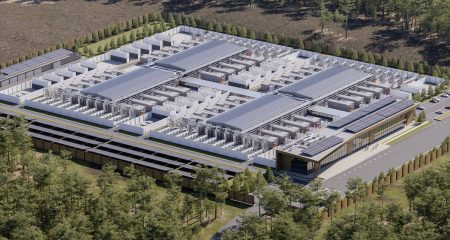 In the dynamic retail landscape, ongoing transformation is a strategic necessity to cater to the reality that the “customer is king”.
In the dynamic retail landscape, ongoing transformation is a strategic necessity to cater to the reality that the “customer is king”.
Retailers must adapt to change to meet new customer demands. The intricate interplay of consumer behaviours, driven by the unstoppable surge of the digital revolution and accelerated by global events such as the Covid-19 pandemic, has highlighted the need for a comprehensive re-evaluation of IT infrastructure, including power sources.
Across Africa, retailers face unique challenges, dealing with issues such as erratic power supplies and IT infrastructure levels that are often less developed than in other parts of the globe.
Navigating the digital revolution
The foundation of the retail sector is shifting as consumers continue to embrace digital platforms. Success hinges on retailers’ ability to blend short-term responsiveness with a visionary outlook, ensuring that while continuing to meet today’s needs, they also keep adapting to the digital trends shaping the future of retail.
The achievement of consistency across diverse channels is central to the success of businesses in the sector. The line between online and offline experiences continues to blur, necessitating a seamless transition between virtual and physical interactions with brands.
The digitalisation of retail across Africa
Technology in the retail space can provide a competitive advantage. However, it requires a robust infrastructure platform to enable resilience to failure, cost efficiency in operation, efficacy in delivery and agility to adapt.
In African markets – from Lagos to Nairobi and Cairo to Casablanca – traditional trade outlets remain the biggest segment in most markets across the continent. South Africa is an exception here, with a large, developed retail sector contributing over 65% of the country’s consumer goods sales.
According to market intelligence and advisory centre 6Wresearch, the African retail and wholesale market size is expected to see significant growth between 2022 and 2028. Boston Consulting Group further states that African consumers on average continue to buy more than 70% of their food, beverages and personal care products from the continent’s more than 2.5 million small, independent shops.
It can thus be seen that the digitalisation of traditional markets across Africa suggests strong business and growth opportunities. And, despite its popularity and resilience, traditional retail in Africa faces many challenges, including the expansion of modern retail, the rise of e-commerce and changes in consumer behaviour. In response to such challenges, a growing portion of traditional shops are slowly adopting digital retail services.
Regulatory challenges and environmental considerations
Compliance with local and international environmental regulations further amplifies the intricacies of retail processes. Thus, ongoing success for retailers demands not only an acute understanding of the current regulatory landscape but also an ability to strategically position infrastructure in alignment with emerging environmental standards and the latest technology innovations.
This dual focus ensures compliance as well as a resilient and forward-looking foundation capable of withstanding all regulatory changes that might lie ahead.
 A must-have for retailers: reliable UPS solutions to protect business continuity
A must-have for retailers: reliable UPS solutions to protect business continuity
Energy experts warn that the electricity shortages that plague many of Africa’s countries, such as South Africa’s frequent load shedding, are a serious drain on the continent’s economic growth.
Load shedding has led to lower retail foot traffic and also increased operating costs as many retailers have had to spend millions monthly on diesel to power generators during the outages. Food retailers have been particularly affected by load shedding, as they must keep fridges and freezers running during power cuts.
An uninterruptible power supply (UPS) is not only needed in the case of a power failure – it can help a retail business to be more efficient with the monitoring and predictive maintenance it offers. Additionally, the type of UPS and battery backup you need depends greatly on the devices and applications it is supporting.
Strategic planning for long-term resilience
At the core of future-proofing retail infrastructure lies strategic, long-term planning. Scalable solutions that flexibly accommodate future requirements, coupled with a comprehensive understanding of regional and global dynamics, are essential for resilience in the face of uncertainty and change.
Providers of critical infrastructure solutions can play a pivotal role in empowering retailers for the digital age, but they must also be strategic partners committed to delivering the continuous availability, reliability and efficiency of essential elements in evolving retail settings. Partners with a comprehensive approach – from innovation and design to manufacturing and ongoing support – will provide a seamless, efficient experience throughout the infrastructure life cycle, empowering retailers to gain invaluable insights and make informed, data-driven decisions to propel their businesses forward.
Fit for the future
The journey towards implementing the right infrastructure is not a one-time event but rather an enduring commitment. To both survive and thrive, retailers must embrace continuous evolution, ensuring that their infrastructure responds to current needs, while also anticipating the transformative trends shaping the retail industry of tomorrow.
For more information on the retail-focused solutions of Vertiv, a global provider of critical digital infrastructure and continuity solutions, please click here.
- The author, Henry Myburgh, is strategic key account manager at Vertiv Africa
- Read more articles by Vertiv on TechCentral
- This promoted content was paid for by the party concerned




